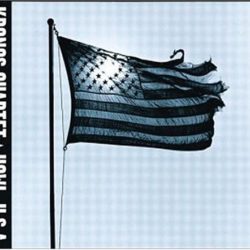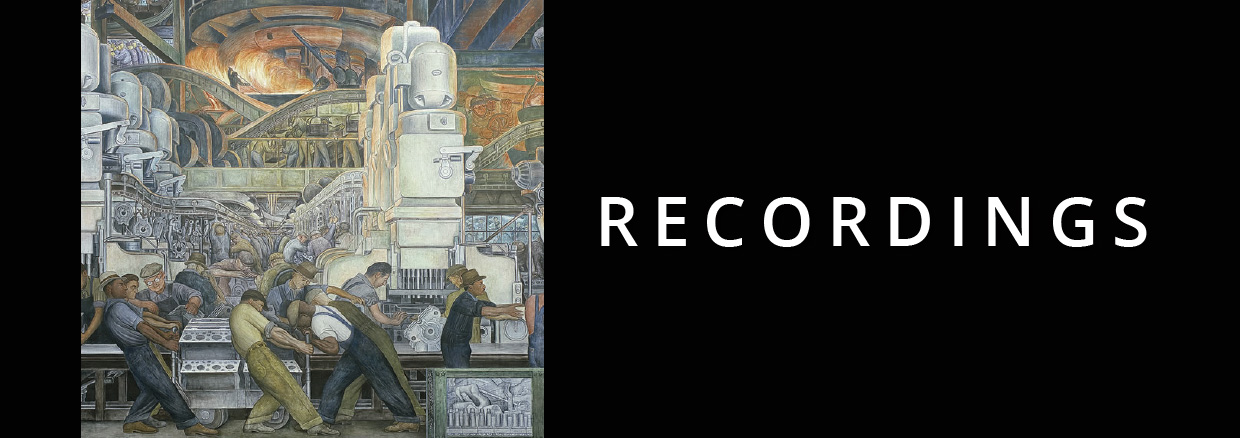Kronos Quartet: Howl, U.S.A.
Nonesuch/June 1996
Sing Sing: J. Edgar Hoover
Kronos Quartet

REVIEW FROM GRAMOPHONE:
The organization that was “as close as your nearest telephone” is now as close as your nearest CD player – or at least a reminder of it is. Michael Daugherty’s acid collage on the words and work of J. Edgar Hoover recalls the heyday of a paranoid phase in the history of the FBI. Daugherty gives you Hoover’s voice, the ringing telephone, gunshots, sirens (imitated by the strings of Kronos), The Star-spangled Banner and – in branding Hoover “an ass” – the relevant quotation from Saint-Saens’s Carnival of the Animals. It’s a hoot, but it’s also deadly serious. “There is no place in America for vigilantes, rabble rousers, the lunatic fringe…” says Hoover (you actually hear him say it), and by the time you’re through with Sing Sing: J. Edgar Hoover you’re busy looking over your shoulder.
Daugherty’s voice-samples, upbeat accompaniments and dramatic interludes contrast with the decidedly off-beam lyrics of the eight inscriptions by “transcontinental hobo” Harry Partch, a composer whose catalogue of accomplishments includes the invention of a ‘blow-boy’ (a hybrid of bellows and an automobile horn). Here, however, Ben Johnston employs his worse-for-wear voice in an original arrangement where the various inscriptions are interspersed with a glum pizzicato ritornello. Fun though it is, one playing was certainly enough – at least for me. Far more durable is Scott Johnson’s ongoing work, How It Happens, based on the writings of radical journalist I. F. Stone.
Johnson’s aim is to convince his listeners by exploiting “a clear musicality in human speech, both in moments of persuasion and in public rhetoric”. Stone’s voice is soft, decisive and clear, while Johnson and Kronos mirror his words (which are often repeated) to powerful effect: the closing sequence – where, beyond hypothesizing a missile attack, Stone posits the question “Think what would have happened if…” – uses speech and music to suggest a sense of hopelessness that words alone could never have conveyed. Quiet though it is, Stone/Johnson is infinitely more disturbing than Hoover/Daugherty.
Howl, from which the disc takes its title, grants a wild aural backdrop to a Whitmanesque epic that helped get the ‘beat’ generation on the rails. Just occasionally Lee Hyla’s music threatens to drown Allan Ginsberg’s impassioned declamation (which, incidentally, was recorded last year especially for this album); and yet the sum effect of her work makes potent stuff of a poetical onslaught that many today will recall with either affection or contempt. Forged in three sections, it’s a sort of ‘Chamber Symphony in three movements’, the first a hectic catalogue of the times, the second a commentary of society’s soullessness and the third a pledge of ‘holy’ affirmation. Listen hard and you’ll soon realize that not much has changed, save that nowadays the voice of protest has lost its edge. Howl marks a triumphant conclusion to a programme that is as much ‘performance art’ as it is music. Being a bit of a lapsed beatnik myself, I loved it – but it’s certainly not one for the quiet hours.
